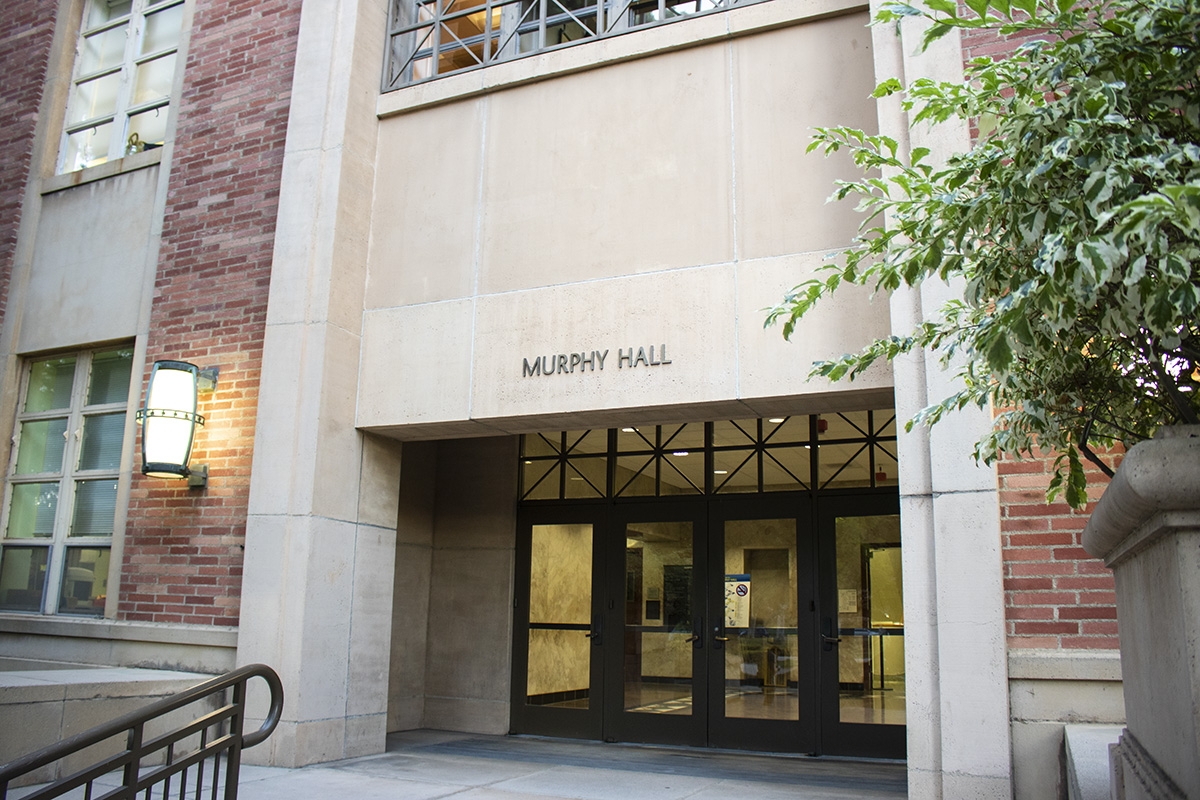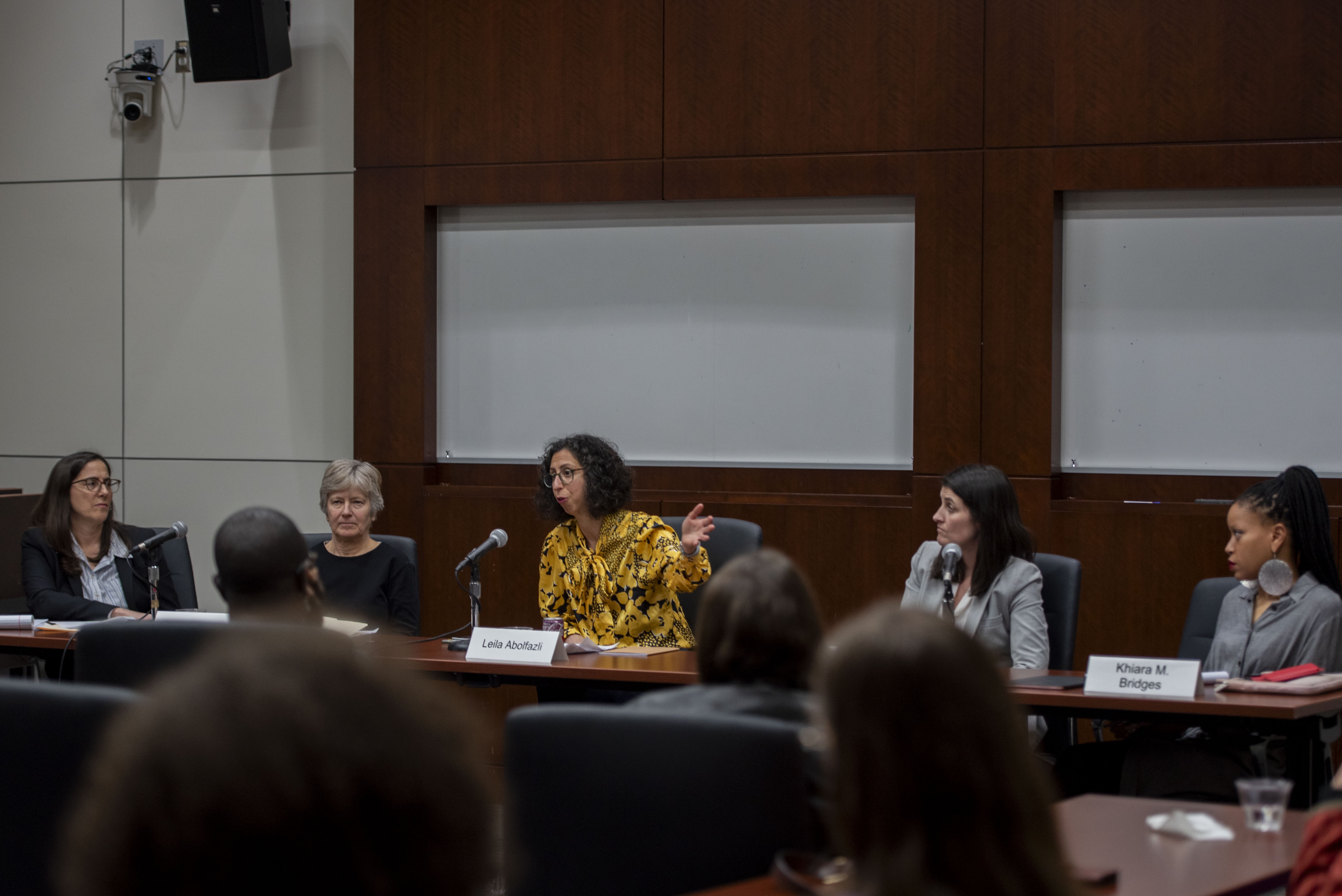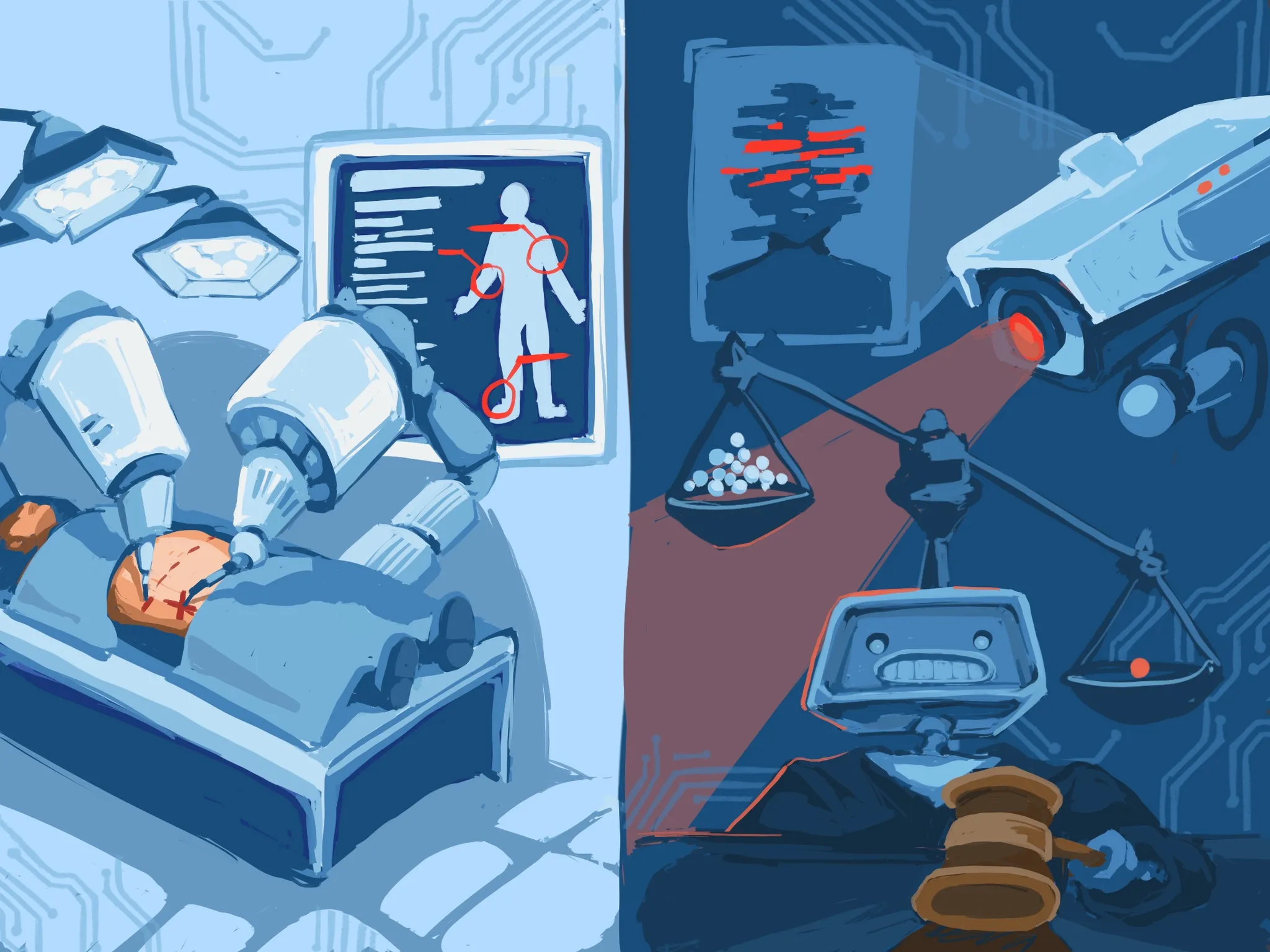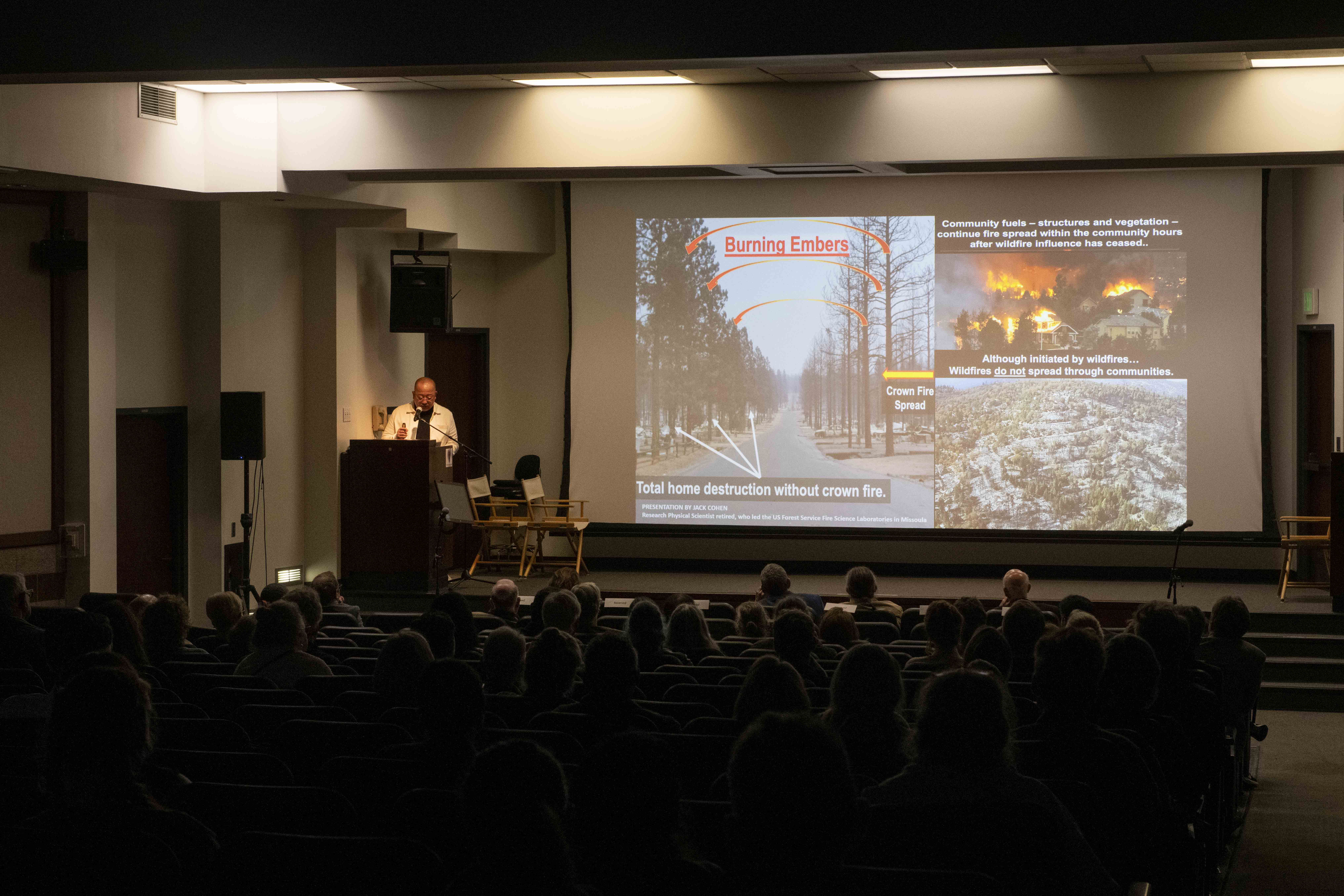UCLA DataX panel experts review technological influence on human rights, democracy

Murphy Hall is pictured. The DataX Impact Forum is located in Murphy Hall. (Daily Bruin file photo)
By Leilani Krantz
June 25, 2025 9:21 p.m.
Students and faculty discussed how technological developments impact human rights and democracy at the DataX Impact Forum in May.
The event – titled “Beyond Broligarchy: The Fight for a Better Future” – featured an hour-long conversation between Cory Doctorow, a journalist and science fiction author, and Ramesh Srinivasan, a professor at the UCLA School of Education and Information Studies. Afterward, the speakers answered audience questions.
Srinivasan said on the panel that Doctorow’s advocacy around issues of digital surveillance inspired the event. Srinivasan added on the panel that the relationships between the heads of large technology companies and the current presidential administration are concerning.
Multiple technology billionaires – including Amazon CEO Jeff Bezos, Google CEO Sundar Pichai, Tesla and SpaceX CEO Elon Musk and Meta CEO Mark Zuckerberg – attended Trump’s inauguration Jan. 20.
“There is something that made me want to vomit watching that scene at the inauguration, and some of the things that have occurred since – again, independent of one’s political views – but more about a consolidation of power,” Srinivasan said on the panel.
Srinivasan said on the panel that he is familiar with Silicon Valley – and added that, even as a student, he wondered if the world of technology was headed in a “disturbing” direction based on the instruction he received in courses.
“When I was 20, I remember taking a class at Stanford,” he said on the panel. “It was my only sociology of technology class, but it wasn’t asking any social, cultural, political, philosophical, economic, ecological questions.”
Doctorow also said on the panel that he noticed technology companies making their products less efficient as they approach monopolization of their respective industries. For example, Google has intentionally made its search engine less efficient to increase its usage, he added in the panel.
Doctorow said he believes this can be attributed to eased governmental regulations on these companies.
“They faced the constraint of competition, and then we relaxed our antitrust standards and let them buy all their competitors,” he said on the panel.
Technology workers should resist requests to make their products less useful due to the demand for their work, Doctorow said. He added that companies are interested in replacing jobs with artificial intelligence to create compliant workforces to avoid this.
Doctorow said pushing back against anti-competitive legislation is crucial to disrupt monopolies. Legalizing jailbreaking, or the removal of manufacturer-imposed software restrictions, is one option, he added.
Tesla would be especially vulnerable to these policy changes, as its revenue is largely driven by software subscriptions and upgrades, Doctorow said.
“There are some things that need breaking,” he said on the panel. “If those things belong to billionaires, we should break them with great enthusiasm.”
Doctorow also said he believes that privacy issues stem from this lack of regulation.
“It doesn’t matter if we agree why we should have privacy so long as we all agree that we should have privacy,” he said on the panel. “Then there’s the potential for really big political breakthroughs.”
Doctorow said on the panel that a partnership between technology corporations and the government impacts privacy law. Data collected by the private sector is used as a source of information that can be searched warrantlessly, he added.
“We pay for the distraction rectangle in our pocket that gathers the data on us, and then the NSA shows up and takes the data,” Doctorow said. “It would be ruinously expensive and very difficult for them to convince us to carry these, unless we were getting them from the private sector.”
Daniel Khurgin, a business analytics graduate student at the UCLA Anderson School of Management, said this was the first event hosted by DataX that he attended. He added that he appreciated Doctorow’s insights – and how he connected his expertise in science fiction to his stances on legislation.
“The way he’s able to present his opinions and his methodologies moving forward in the world are really helpful,” Khurgin said. “It’s not just giving us his perspective but also giving us actionable things that we can do to help move the world in a better place.”





